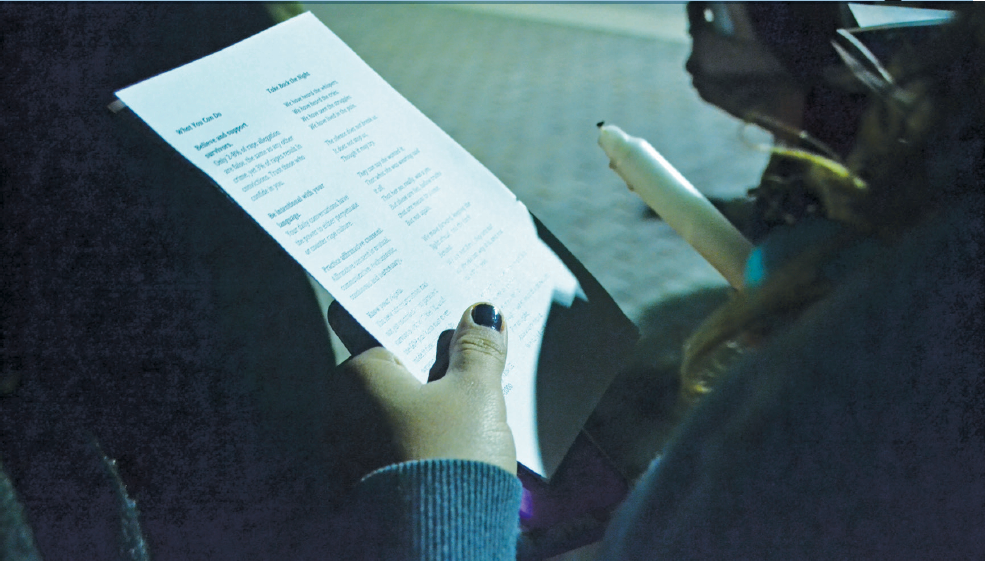Five survivors of sexual assault and domestic violence took the stage in Gunnison Memorial Chapel this past Tuesday, October 24, to tell their stories as part of the annual Take Back the Night event.
Take Back the Night began in the 1970s to protest violence against women. The events normally commenced with a rally, followed by a march, and ended in either a candlelit vigil or a speak out period, in which survivors were encouraged to share their stories in a safe place. The SLU version encompasses most of these facets, but switches out the rally for a sharing of pre-approved survivor’s stories.
The rallies were meant to reclaim the night, a time in which many women feared for their safety. They were centered on a variety of issues, including the hope for the dissolution of the pornography industry, and the desire for all women to be able to walk alone after dark without fear of violence. Inspiration for the events were drawn primarily from attacks on women at the time, including the brutal stabbing of Susan Alexander Speeth during her walk home in 1975.
In addition to allowing survivors to “reclaim” the night, TBTN also utilizes the nighttime metaphor as a means of highlighting the ways in which survivors are silenced. As Rachel Starr ’18 points out: “Society often shrouds survivors of domestic violence and sexual assault in a metaphorical nighttime, forcing them into the shadows rather than giving them the attention they deserve.”
Take Back the Night began as an event for women, by women, thus barring men from attending. In the last ten years, though, the event has transitioned to become gender-inclusive nationwide. Consequently, all genders are welcome in the chapel during SLU’s rendition of Take Back the Night, be it to share their stories or to listen to the experiences of others.
Despite the alterations to the attendance policy for the event, not all SLU students were aware of the allowances made for all genders. John Henry Trudeau ’18 states, “Up until this point, I had thought Take Back the Night was a space for women only. Now that I am aware of the inclusivity of the event, I plan on attending the event in the spring semester to show my support for survivors.”
The alteration to the women-only policy has allowed for the inclusion of thousands more survivors and allies, and was also shut down much of the criticism that surrounded original. Take Back the Night rallies on university campuses. Activists on college campuses, such as Stanford, argued that the exclusion of males contributed to an already prevalent tactic of silencing male survivors and preventing the creation of alliances across gender to combat the issues of sexual assault and domestic violence.
Take Back the Night has been praised for shedding light on sexual and domestic violence and for giving a voice to those who feel as though they’ve been stripped of one. The devotion exhibited by the Women’s Resource Center and the SLU Advocates to TBTN, as such, is demonstrative of a wider campus commitment to tackling issues of sexual violence.



